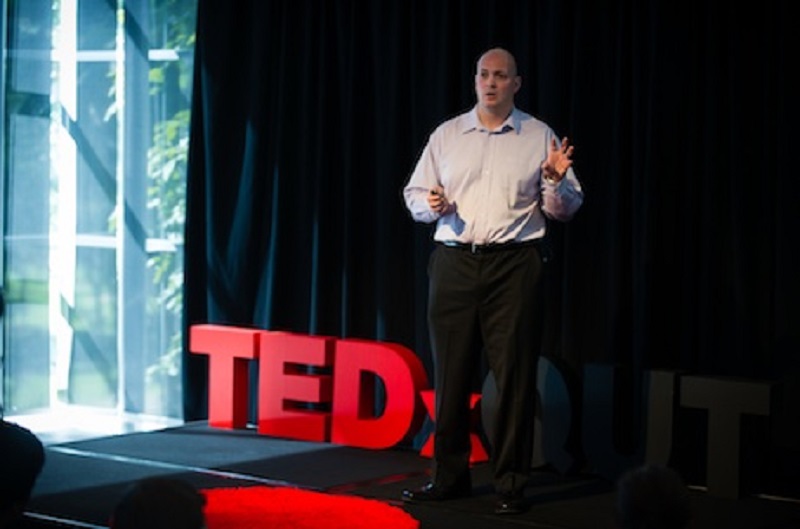
Energy technology entrepreneurs need to work more collaboratively with incumbent energy businesses, a Gates Cambridge alumnus said in a recent TEDx talk.
Energy technology entrepreneurs need to work more collaboratively with incumbent energy businesses to give them more time and resources while their new energy technologies gain traction in the marketplace, a Gates Cambridge alumnus told a recent TEDx event.
In the talk given in Brisbane last month but just posted online this week, Rob Perrons [2001] says that the energy technology revolution has not happened because of the extreme complexity, interconnectedness and very capital-intensive nature of the energy sector. These forces work together to create an environment in which technologies are absorbed extremely slowly, he says. This slow pace of technological change creates a very difficult environment for entrepreneurs, he says, because technology revolutions are often driven by small firms with a fresh perspective who turn their industry upside down.
Traditional ways of funding new innovations, such as venture capital, are often ill-suited to energy technology investments because the pay-off can take 20 years or more, said Perrons, who did his PhD in Engineering at the University of Cambridge with support from a Gates Cambridge Scholarship.
"And even if you are lucky enough to get that initial funding, then you have to keep the business alive over a 20-year period while your idea catches on in the industry," he added, saying that delay accounted for the high rate of failure of energy technology start-ups.
"We need to rethink and reboot the business models that underpin these promising new energy technology concepts," he said.
Perrons, who is currently an Associate Professor in Technology Management and Strategy at the Queensland University of Technology, called for fresh approaches and government policies that make it easier for energy technology entrepreneurs to work with traditional energy businesses, and added that this more collaborative approach could buy the entrepreneurs "time for their ideas to get traction."
Watch Rob Perrons' talk here.












